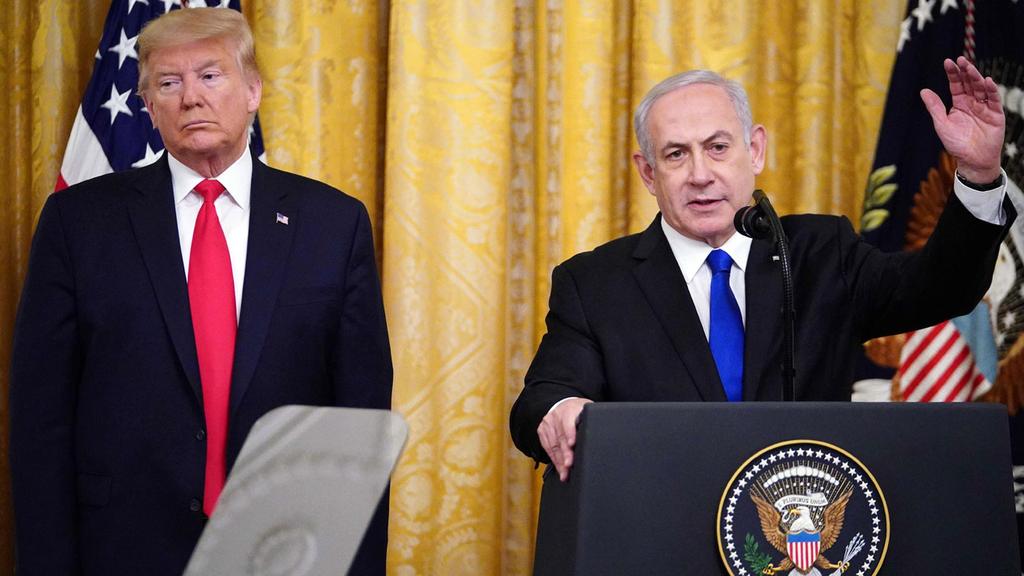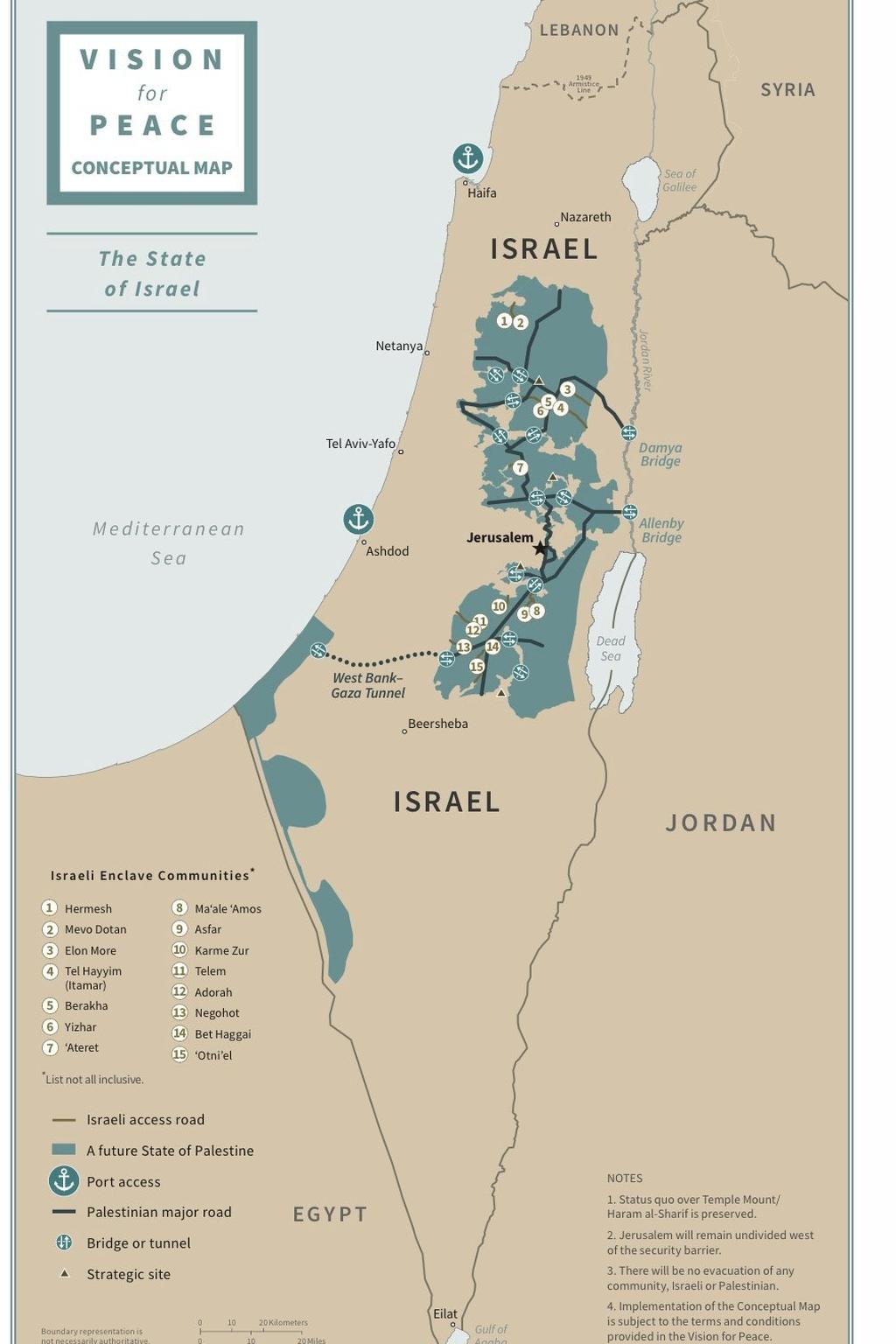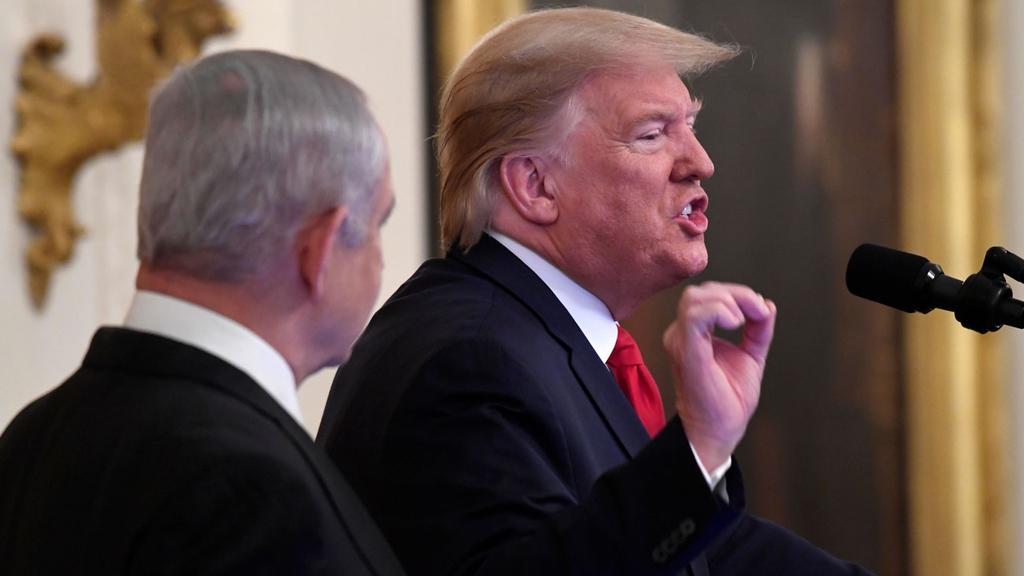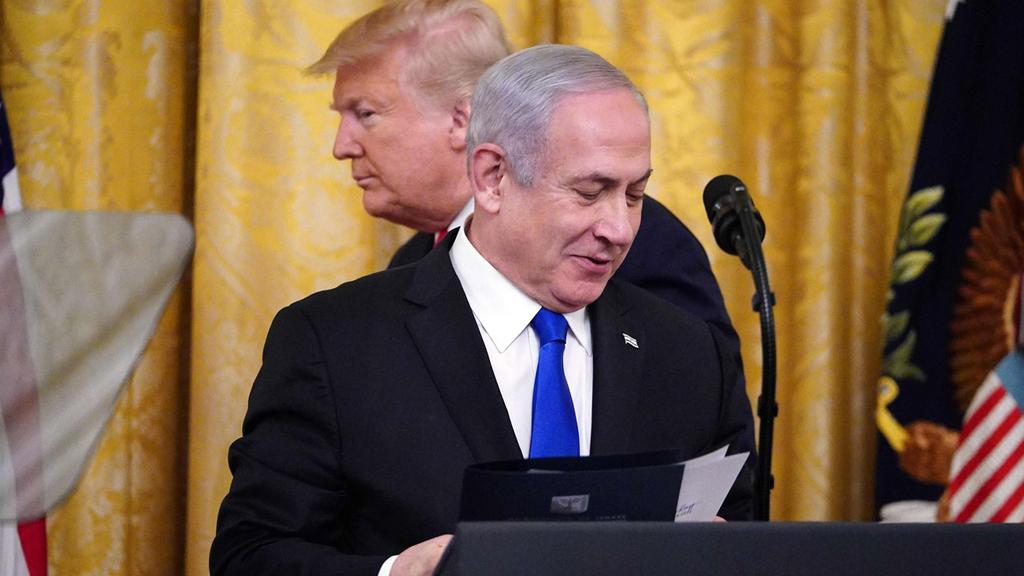Getting your Trinity Audio player ready...
President Donald Trump called for the creation of a State of Palestine, ending speculation as to whether his administration, in preparing the Middle East peace plan without input from Palestinian leaders, would abandon a "two-state resolution" to the conflict. The potential future state will include parts East Jerusalem as its capital but only if the Palestinians take steps to become self-governing.
Senior administration officials, briefing the media on the plan the president announced at the White House on Tuesday, said that under Trump's proposal the United States will recognize Israeli settlements on the West Bank. In exchange, Israel would agree to accept a four-year freeze on new settlement activity while Palestinian statehood is negotiated.
However, it was not immediately clear if the freeze could be extended if a final deal is not concluded in the four-year time period allocated for its implementation.
Trump held a special press conference together with Prime Minister Benjamin Netanyahu where he unveiled the details of the long-delayed proposal, dubbed "the deal of the century." The president said the prime minister told him the Trump administration's proposed plan would be a basis for direct negotiations.
"Today, Israel has taken a giant step toward peace," Trump said at a White House event. "Yesterday, Prime Minister Netanyahu informed me that he is willing to endorse the vision as the basis for direct negotiations - and, I will say, (opposition leader Benny Gantz) also endorsed and very strongly - with the Palestinians a historic breakthrough."
Trump has also endorsed a proposed map outlining the two states, which he posted on his Twitter account. The Palestinian state would be double the size of land that Palestinians currently control and would be connected by roads, bridges and tunnels.
The proposed state would be entirely demilitarized, including the Gaza Strip, controlled by Hamas terrorist organization, with a large presence of Iranian-backed Islamic Jihad.
"The state of Israel suffers from extraordinary geostrategic challenges," said the peace plan's official document. "Simply put the State of Israel has no margin for error. As dangerous as Gaza, run by Hamas, is to the State of Israel's safety, a similar regime controlling the West Bank would pose an existential threat to the State of Israel."
In addition, the West Bank and the Gaza Strip would be connected by a tunnel passing through Israeli territory.
The plan does call for a four-year freeze in new Israeli settlement construction, during which time details of a comprehensive agreement would be negotiated, according to the officials who spoke on condition of anonymity ahead of Trump's announcement. However, it was not immediately clear if the freeze could be extended if a final deal is not concluded in the four years.
Trump went on to say he sent a letter to Palestinian President Mahmoud Abbas, where the U.S. president promised if the Palestinian leadership chooses to accept the plan, the Americans as well as the other countries "will be there every step of the way to help."
"It's going to work," Trump said. "If they do this, it will work. Your response to this historic opportunity will show the world to what extent you are ready to lead the Palestinian people to statehood."
"This is a historic day," Netanyahu said, comparing Trump's peace plan to former President Harry Truman's 1948 recognition of the state of Israel. "On this day, you became the first world leader to recognize Israel's sovereignty over areas in Judea and Samaria that are vital to our security and central to our heritage," he added, using the Biblical names for the West Bank.
He said he is ready to enter the negotiations with the Palestinians on the basis of the peace proposal, calling it "a realistic path to a durable peace." He added that Trump's plan "strikes a balance."
"And on this day, you too have charted a brilliant future, a brilliant future for Israelis, Palestinians and the region," Netanyahu said.
The prime minister added that Trump recognizes that Israel must have sovereignty in the Jordan Valley and other places "where it can defend itself, by itself."
Netanyahu added that Palestinian refugees won't have a right of return under the plan. Palestinian right of return is a political position that Palestinian refugees, both first-generation refugees and their descendants, have a right to return to what now is the State of Israel.
"I know that there'll be opposition," Netanyahu said. "There's always opposition. I know there will be many obstacles along the way, much criticism. But we have an old Jewish saying: 'If not now, when? And if not us, who?'"
Both leaders then thanked the Gulf Arab states of Oman, United Arab Emirates and Bahrain for sending their ambassadors to the attend the conference for the unveiling of the peace plan.
Once the press conference was over, Netanyahu clarified to the reporters that the proposed Palestinian capital would be located in Abu Dis, a neighborhood on the outskirts of Jerusalem. He said the U.S. recognizes Jerusalem as Israel's undivided capital, "by which I mean, within its fences," an apparent reference to municipal boundaries.
The 50-page political outline goes further in concessions to the Palestinians than many analysts had believed was likely. However, it would require them to accept conditions they have been previously unwilling to consider, such as accepting West Bank settlements. It builds on a 30-page economic plan for the West Bank and Gaza that was unveiled last June and which the Palestinians have also rejected.
The officials said that both Prime Minister Benjamin Netanyahu and his main political challenger in March elections, Benny Gantz, had signed off on the plan. Netanyahu will be beside Trump as he unveils the plan at the White House.
The event comes as Trump's impeachment trial continues in the Senate and Israel's parliament had planned a hearing to discuss Netanyahu's request for immunity from criminal corruption charges. Netanyahu withdrew that request hours before the proceedings were to begin, but Israel's parliament, the Knesset, is still expected to meet. The body had been likely to vote against immunity, dealing Netanyahu a blow.
In the run-up to the March 2 election, Netanyahu has called for annexing parts of the West Bank and imposing Israeli sovereignty on all its settlements there.
5 View gallery
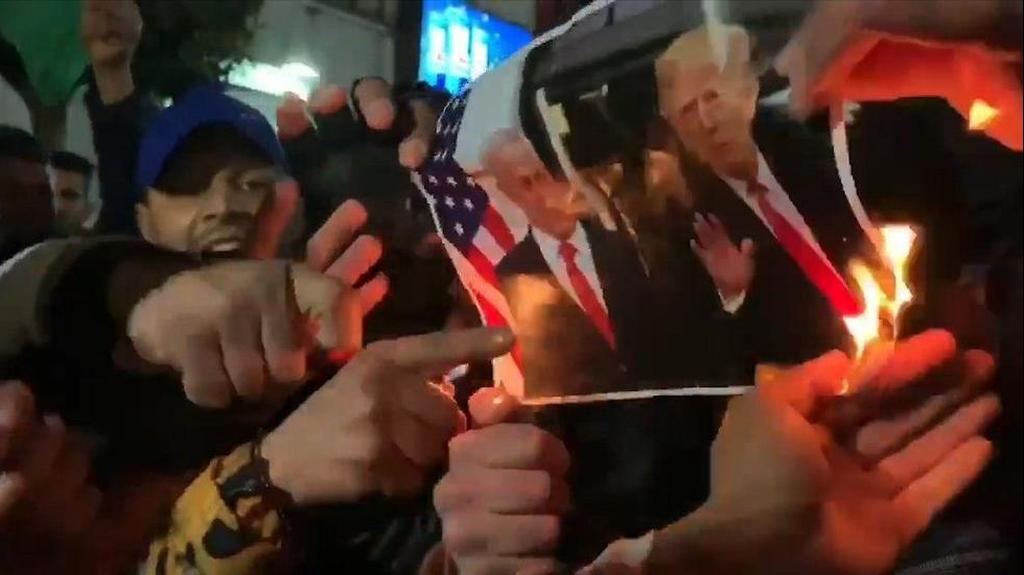

Images of Trump and Netanyahu being burned in Ramallah during unveiling of peace plan
Security responsibility for the West Bank would remain in Israel's hands for the foreseeable future but could be scaled back as the nascent Palestinian state builds its capacity, under the terms of the plan, which says that statehood will be contingent on the Palestinians meeting international governance criteria.
The Palestinians see the West Bank as the heartland of a future independent state and east Jerusalem as their capital. Most of the international community supports their position, but Trump has reversed decades of U.S. foreign policy by siding more blatantly with Israel. The centerpiece of his strategy was recognizing Jerusalem as Israel's capital and moving the American Embassy there. He's also closed Palestinian diplomatic offices in Washington and cut funding to Palestinian aid programs.
Those policies have proven popular among Trump's evangelical and pro-Israel supporters and could give him a much-needed boost from his base as he gears up for a reelection battle this year.
But the Palestinians refuse to even speak to Trump and they are calling on support from Arab leaders. The Palestinian leadership also has encouraged protests in the West Bank, raising fears that the announcement in Washington could spark a new round of violence.
First published: 18:25, 01.28.20


